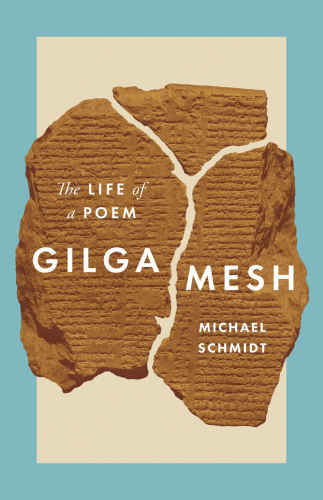
Gilgamesh
The Life of a Poem
کتاب های مرتبط
- اطلاعات
- نقد و بررسی
- دیدگاه کاربران
نقد و بررسی

June 10, 2019
Schmidt (The Novel: A Biography), a critic and poet, outlines the circuitous, millennia-old path by which the epic of a young Sumerian king came to light and continues to fire literary imaginations. The ancient poem “Gilgamesh,” dating back to 700 B.C.E., comes from 12 clay tablets, unearthed in the 1850s during excavations in what is now Iraq. Subsequent fragments continue to surface, inscribed in different ancient languages. Because of this, “the poem remains provisional, shifting like dunes.” The book’s first half summarizes and analyzes each tablet, together encompassing the story of King Gilgamesh’s wild early years and eventual maturation, his friendship with the wild man Enkidu, and his search for the secret to eternal life after Enkidu’s death. The second half broadens out to encompass the poem’s many implications, such as how the discovery of its pre–Noah’s Ark account of an annihilating deluge reshaped views about the composition of the Bible. Comparing different translations, Schmidt finds that each version, “while taking us on roughly the same road, negotiates the steeper gradients and the numerous pot-holes in different ways.” Thanks to these and other striking turns of phrase, Schmidt leavens what could be ponderous textual analysis with his own poetic skills, creating an insightful, stimulating book sure to breathe new life into the would-be immortal king. Agent: Georgina Capel, Georgina Capel Associates.

September 1, 2019
The Babylonian epic poem Gilgamesh, long lost until a series of clay tablets were unearthed and translated in the 19th century, is among the oldest and newest classics of world literature. Tracing the adventures of its semidivine hero and his companion Enkidu, the poem is about the pathos of humanness, mortality, and otherness. It included an account of an apocalyptic deluge strikingly similar to that of Noah in the Bible. The cuneiform clay tablet "text," itself a composite of millennia of "texts," represents an unstable and unfinished work as new elements are uncovered and our knowledge of the languages develops. Schmidt (The Novel; The First Poets) foregrounds the ambiguities and diverse interpretations of the poem, then traces the story, comparing the various translations and versions, scholarly and not, especially those of N.K. Sanders, Benjamin Forster, and Andrew George. He further considers artistic responses to the poem by various poets and translators from Rilke to Charles Olsen, Louis Zukofsky, and Andrea Brady, and has quizzed some 50 contemporary writers on their reactions. VERDICT Schmidt's book deeply enriches our appreciation of a work already rich. A solid addition to all collections.--Thomas L. Cooksey, formerly with Armstrong Atlantic State Univ., Savannah
Copyright 2019 Library Journal, LLC Used with permission.

























دیدگاه کاربران